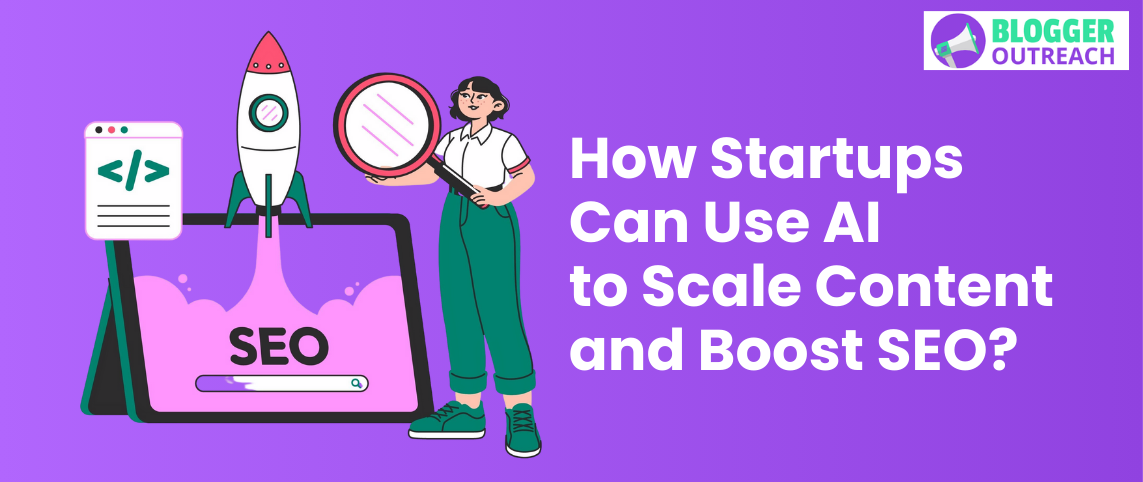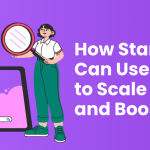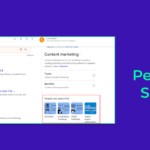Table Of Content
For a small organization, content isn’t just another important part of their website anymore. In 2025, it’s quite easy to get lost in the noise of competition if you don’t have a solid content strategy for startups backing you up. In today’s market, great content is what builds trust, drives organic traffic, and turns visitors into loyal customers.
But the problem is – creating consistent, high-quality content takes time. And time, as any founder knows, is a luxury most startups can’t afford.
That’s where AI for the content market comes in. With artificial intelligence, you can research keywords easily, generate content outlines, optimize headlines, and write SEO-friendly articles. As a whole, AI isn’t just another helpful partner – it’s a growth engine.
Let’s discuss more about it.
1: Understanding AI In Content Creation And SEO
The process of creating content is quite time-consuming.
Firstly, you need to choose a good topic by researching thoroughly on a tool like Google Trends. Once you’ve found what you’re looking for, it’s time to find the right keywords for it. Then, you have to create an outline and start writing the content while making sure you’re not sharing any wrong information.
So, instead of doing it all by yourself, why don’t you use AI to complete the manual tasks while you focus on something else? While AI can write a great article on the topic you’ve given it, the tone of it usually sounds a bit too robotic. So, we’d suggest you put your own inputs in the content. But other than that, you can let AI do everything.
You may also tell it to create a content strategy for startups, and it’ll share something usable right away. Then, you can take the help of an expert to make modifications to it.
2: Creating An AI-Powered Content Strategy
Creating a good content strategy for startups from scratch can be difficult. While a digital marketing agency can help you out with it as well, if you want to do it all by yourself, using AI for content marketing can be perfect. Here’s how it can help you out –
A: Market Research
With AI tools, you can scan tons of data in a matter of seconds. It also provides insights into what your audience cares about the most, what keywords they search for, and what your competitors are doing. This essentially saves a lot of your time.
B: Content Planning
AI can look at current trends and suggest what topic you should be writing about. Once you’ve found a subject to work upon, you may also use AI for content creation, which may include the following –
- Coming up with blog post ideas.
- Creating headlines.
- Structuring the content and writing outlines for it.
This makes your scalable content marketing process much faster and even more organized. You also reduce the risk of making mistakes with facts and statistics.
C: Content Calendar
Thanks to how quickly AI works, you can also use these tools to build a content calendar for your purpose. Here are some instances where AI may be used –
- Scheduling posts.
- Suggest publishing times.
- Plan content for the next few weeks.
If you’re short on time, content automation for startups is a game-changer. With the right tools, you can plan, create, and publish faster – without losing quality.
3: Scaling Content Creation With AI
Startups often struggle to keep up with content demands. You’ve got limited people and only a small amount of time. And honestly, creating good content all alone every day isn’t really easy. However, if you want to scale things up without hiring too many people all of a sudden, AI can be extremely helpful for you.
A: Assistance In Writing
With AI writing tools, like Jasper or ChatGPT, you can write blog posts, product descriptions, emails, and social media captions almost instantly. The tools are smart enough to understand tone, suggest a structure for your content, and generate ideas based on what you’re looking for. And you can use them as many times as you want!
B: Consistency In Branding
While AI is great for writing solo content, is it good for branding? With a little bit of training, yes – it is very efficient in that case as well. Before you use AI to start working on your project, you can share some information with it for training purposes.
Some examples of this are –
- Use a formal tone for writing.
- Make sure that the sentences are short and simple.
By training AI to write in a certain tone and tenor, you can be consistent throughout all channels and improve your branding even more.
C: Improvement In Content Quality
Unlike a human writer, AI can consistently churn out high-quality content regularly. However, the tone may sometimes sound too robotic. In order to avoid this, you can carry out a short review session where you make changes in the content to make it look more human. That way, you keep your brand voice strong and your message clear.
4: Optimizing SEO With AI Tools
SEO is yet another part of content creation where the AI tools can be extremely helpful. Some examples of the same are as follows –
A: Keyword Researching And AI
AI tools, like SEMrush, Surfer SEO, and Ahrefs, can find what your audience is searching for pretty quickly. With them, you can also find out how hard it might be to rank on a certain keyword and suggest better alternatives. This makes it easier for you to create a smart startup SEO strategy for your business.
B: On-Page SEO And AI
Unlike what we have explained as of now, AI cannot completely change your website’s on-page SEO entirely. However, it can help in making small but important changes –
- Meta descriptions
- Headers
- Keyword placements
- Internal linking
Also, AI tools like Grammarly offer real-time suggestions while you are writing. That’s very helpful, especially when you’re still figuring out your content strategy for startups.
C: Technical SEO And AI
AI can run site audits and find problems like broken links, slow page speed, or weird mobile issues. These tools spot things humans might miss. And fixing them? That can make a huge difference in how Google sees your site.
5: Personalizing User Experience With AI
Creating content is one part of the puzzle of your success. You’ll also have to make sure that it connects with the right people. That’s where user personalizing comes in.
A: AI-Driven Content Recommendation
If implemented, AI tools can track what users do on your website, like –
- What are they clicking on?
- What they might be reading.
- How long are they staying on a single page?
Based on this, the AI would suggest content to users by matching each of their interests. These smart recommendations can increase the level of engagement and keep the users coming back. It’s a great way to support your content strategy for startups without constantly guessing what to post next.
B: Using Chatbots
Chatbots, nowadays, aren’t only being used for answering FAQs anymore. You can also ask them to chat with users, guide them through your website, and suggest products and content to them. This way, they make it feel more like a conversation than a random sales pitch. And that’s brilliant for building trust.
C: Adapting Content In Real-Time
Yes, you can use artificial intelligence to adapt your content in real-time. For example, let’s say a user visits your website twice a week. And in the second week, they are seeing a different blog or product suggestion based on what they’d gone through earlier. This kind of dynamic content makes the experience feel more personal and useful.
6: Automating Content Distribution
Once you’ve become successful in getting more traffic, showing it to the right people becomes more important. For instance, if your website is gaining more visibility among people who want to buy an air conditioner – but you’re selling kids’ toys – how does that benefit you, right? The process of distributing content isn’t an easy job. However, you can relieve a little bit of stress from your shoulders by using AI. Here’s how –
A: Social Media Scheduling
AI tools, like Hootsuite, Buffer, and CoSchedule, can handle social media scheduling for you. In this case, all you need to do is set things up, and they will start posting automatically at the best times. This can save a lot of your time and keep your posting schedule consistent, which can bring excellent results for your content strategy.
B: Email Marketing
Email marketing also gets a massive boost from AI. With AI tools, you can write better subject lines, personalize messages, and choose the best time to send to your audience. This goal here should be to get more people to open and read your emails.
And as AI can learn from past results, your messages would get sharper and better, making people open your emails more frequently.
C: Cross-Platform Content
Thanks to AI’s adaptability, you can write one blog post in different formats, like social media posts, short videos, and email snippets. So, instead of starting from scratch every time, you can make the most out of the content you already have.
The Bottom Line
AI isn’t perfect yet, especially when it comes to content creation. It still sounds a little robotic and doesn’t always offer the correct information. However, as long as you are supervising its work, things can turn out to be really good for you.
So, if you are trying to go through the process of creating a content strategy for startups, we’d suggest you use AI. But it might be better to do it while collaborating with an expert.
Good luck!








